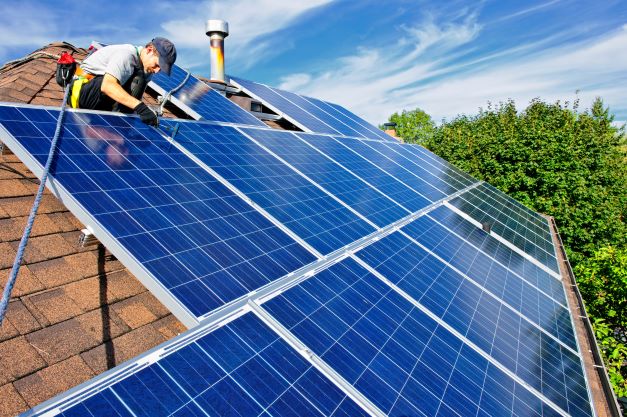As homeowners become increasingly interested in harnessing renewable energy, more and more are turning to solar power as an environmentally friendly and cost-effective alternative to traditional electricity. Solar Energy Hackers has so many different solar panel options available, and choosing the right system for your home is a vital task.
When selecting a solar panel system, it is essential to consider factors such as panel type, energy output, and installation costs to ensure that your investment delivers the desired return. We will explore some of the key considerations to keep in mind when choosing a solar panel system for your home. We will also take a closer look at factors such as panel efficiency, energy output, and price to help you determine which system will best suit your needs and budget.
1. Assess the energy needs of your home
Before investing in a solar panel system for your home, determine the amount of energy your household needs by evaluating your energy usage over the past year. Consider factors such as the number of people living in the house, how much time is spent at home during the day, and your general energy consumption patterns. You can easily calculate your daily energy usage through your energy bills or with the help of online tools that estimate energy consumption.
2. Research solar panel system designs and capabilities
It is recommended to start with an assessment of your energy needs and consumption patterns. This will help you determine the appropriate size and output of your solar panel system. Consider factors such as shading, roof pitch, and available space for installation. Additionally, it is crucial to research the efficiency and durability of different types of solar panels, as well as any certifications or warranties associated with them. Evaluating the performance of solar panels in various weather conditions and climates can also be helpful in selecting the most suitable system for your home.
3. Consider the size of your roof and the local climate
The size of your roof will determine how many solar panels you can install, which will affect the amount of energy your system can generate. It is important to ensure that your roof is structurally sound and can support the weight of the panels. Moreover, the local climate plays a significant role in determining the efficiency of your solar panels. Areas with more sun exposure will generate more electricity than those with less sunlight. In areas with less sunlight, it may be necessary to install larger solar panels or additional panels to generate the desired amount of electricity.
4. Analyze the cost of installation and maintenance
The upfront cost of installation can be significant, but it’s also important to consider the long-term savings and return on investment. A higher quality system may have a higher upfront cost but could result in lower maintenance costs and higher energy savings over time. It’s also important to consider ongoing maintenance costs, such as cleaning and repairs, and factor these into your overall budget. When researching and comparing different solar panel systems, be sure to consider both the initial cost and ongoing expenses.
5. Select a certified and insured installer
By selecting a certified and insured installer, you can have peace of mind knowing that the job will be done safely and effectively. Look for installers who are certified by reputable organizations, such as the North American Board of Certified Energy Practitioners (NABCEP). Additionally, make sure that your installer carries liability insurance, which will cover any damages or accidents that may occur during the installation process.
Conclusion
Choosing the right solar panel system for your home requires careful consideration of your energy needs, installation options, and budget. It’s important to research different types of solar panels, determine the optimal size for your system, and consider the reputation and experience of the installer. By taking these factors into account and seeking advice from experts in the field, you’ll be able to make an informed decision that could not only save you money but also contribute to a more sustainable future.


